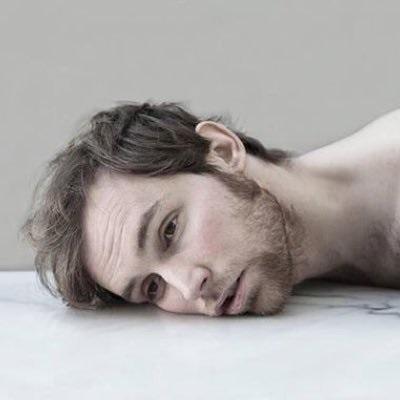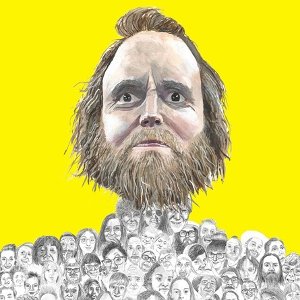
CHARMINGLY offbeat, inspiring, poetic writer, comedian, actor and podcaster Rob Auton returns home to York on February 24 on the 2023 leg of The Crowd Show tour.
After his philosophical observations in abstractly themed shows on the colour yellow, the sky, faces, water, sleep, hair, talking and time, now he discusses crowds, people and connection in a night of comedy and theatre “suitable for anyone who wants to be in the crowd for this show”, structured around internet instructions on how to give a speech.
Ironically, he had started writing material for a show about crowds only a few weeks before the Covid lockdowns silenced them.
His 8pm homecoming has sold out already – York’s in-crowd for that night – but further Yorkshire gigs follow at Hebden Bridge Trades Club, April 16 (01422 845265 or thetradesclub.com); Sheffield Leadmill, April 30, 7.30pm (leadmill.co.uk); Pocklington Arts Centre, May 27, 8pm (01759 301547 or pocklingtonartscentre.co.uk) and Hyde Park Book Club, Leeds, June 5, 7.30pm (hydeparkbookclub.co.uk).
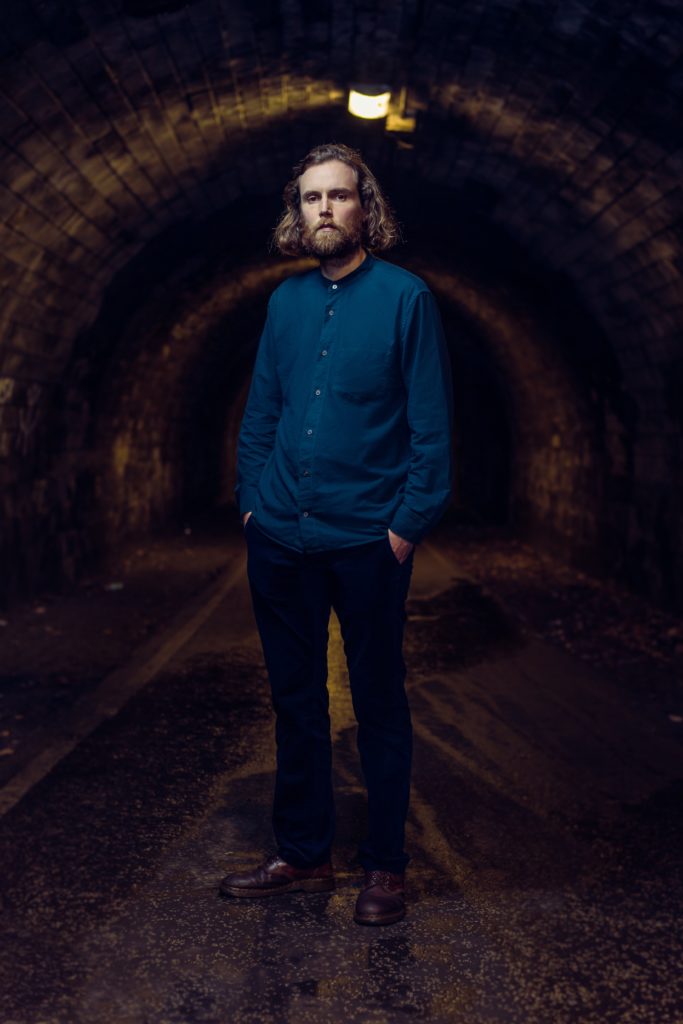
In a crowded calendar, Rob Auton finds time to talk about The Crowd Show with CharlesHutchPress
How do you interpret the proverb “If two’s company, three’s a crowd”?
“I guess it’s different if you’re doing a show and there’s two people watching, I’m there too, so there’s three of us in the room but only two in the crowd and two isn’t a crowd. Maybe I’d sit down with them so there’s definitely a crowd.”
What’s the difference between an audience and a crowd?
“An audience all face in the same direction.”
Do you ever go crowd surfing, James’s Tim Booth or Peter Gabriel style?
“I went crowd surfing once when I was at a festival but that was only because it was the quickest way to get out of the hell that was that moshpit. I’ve never done it in one of my own gigs; I don’t think it works at comedy/spoken word shows.
“People are sitting down so it would put a lot of stress on their arms. I think if I went up to the front row and said ‘I’m going to Crowd surf now’, they would just look at me and remain seated.”
Can being with a crowd (of strangers) ever feel lonely when you are performing?
“I guess it’s a clear illustration of feeling like you don’t really fit in, everybody facing one way and you’re facing the other way. Sometimes I’m on stage and wish I was there in the crowd with my mates watching.
“One of the main objectives for me is making everyone in the room feel like we are all part of something together. I don’t feel lonely when I feel a connection with the crowd, so I really focus on that connection.”
Can being in a crowd ever feel lonely?
“In 2014 I was lucky enough to get the gig as the Glastonbury Festival Poet in Residence. I didn’t get a plus one and none of my mates were going that year so I was there on my own. Being around all those people having the time of their lives with their mates made me feel really lonely. I was pleased for them but also I felt cut off from the human side of the festival somehow.”
Do you prefer being in a football crowd or a concert crowd?
“I’ve had good times at both but I’ve had better times in music crowds.”
What is the smallest ever crowd you have played to?
“It depends on the room. If you have five people in a small room, it can feel like a decent crowd but the crowd that felt smallest was probably when I was on tour in 2015 doing my show about water. I’d been put in a 300-seater room and I think seven people were there, sitting quite far apart from each other. All character building, I guess.”
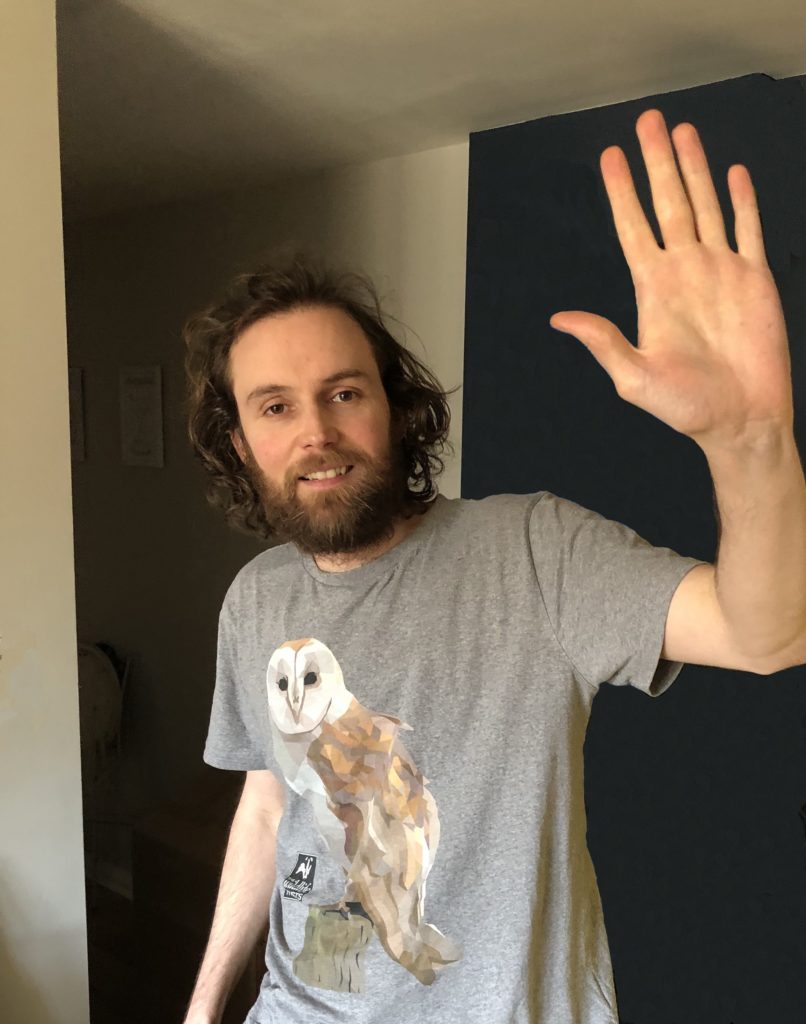
What is the largest ever crowd you have played to?
“The one with the most people in it? Some of the gigs at festivals I have done have had some biggish crowds. I did one at Bestival where people had climbed up trees to watch my set. That was surreal; I think it was because the person on after me was an influencer who was doing a talk on tree climbing. I love it when there’s a big crowd and the laughter kind of crowd surfs around.”
As essentially social creatures, crowd experiences are important to us. Discuss…
“Yes certainly, I think, especially after the last few years we’ve had. Isolation brought the importance of other people into focus for sure. That’s not really me discussing it is it? I certainly feel better when I’ve been around people. Touring can be quite isolating so I have to really make the most of being around people in the show.”
Do you like to stand out in a crowd?
“Absolutely not. I think that’s why I’ve put myself on stage, out of the crowd. When I’m in a crowd, I’m constantly afraid that I’m in people’s way because I’m quite tall [Rob is 6ft 2].
What do you enjoy most about performing to a crowd?
The fact that the energy is different every night. The crowd really keeps me on my toes; I can never get complacent or think ‘oh this will work’. The act of just trying to be honest instead of trying to be clever, the crowd don’t want to see someone show off really, so walking that tightrope is what I love. The unpredictability of it.”
What do you enjoy least about performing to a crowd?
“I wish it could be just slightly more predictable.”
How do you control a crowd when performing? Indeed, do you need to control a crowd?
“There’s certain tools you can develop, eye contact, level and tone of voice, speed at which you talk, etc. It’s spinning plates really, trying to keep everyone engaged, but I often remind myself that the people who have come to see me have got a lot going on in their lives and might drift off and think about something more important for a bit.
“Trying to take control of one person’s brain for an hour is difficult, never mind a crowd of people. There needs to be a certain amount of playful authority or it can descend into chaos.”
When it comes to events, from gigs to football matches, rallies to festivals, most of us only ever experience the feeling of being in the crowd. What does it feel like being the performer playing to that crowd?
“I think ‘playing’ is the right word. It feels like I’ve given myself an opportunity to be in front of people by working hard, so I just have to share what I’ve made and trust my process and work. It feels like, ‘right, let’s give this to these people, they’ve paid me to give them the best side of me, so let’s give it everything I can while I’ve still got the chance.”
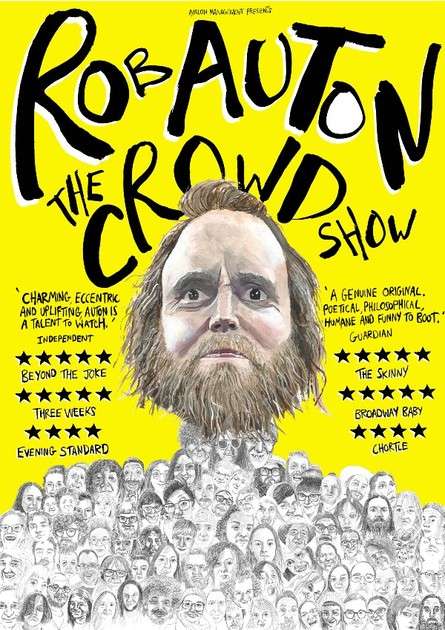
When do you feel you are going against the tide of a crowd?
“Mainly on weekends when I’m going to do shows and other people are making plans to be with their mates. I feel like I’m swimming away from the party a bit then, but I’m very thankful that I get to do what I do so I’m not complaining one bit.”
How do you use the crowd in The Crowd Show?
“I use them by attempting to get them to surrender to the moment and give themselves fully to the space we’re sharing. I might not do that directly in the show but that’s my goal.”
Did the enforced absence of crowds in the pandemic make both you and audiences appreciate the importance of crowds in our lives even more?
“Definitely, that period made me realise how important people are in my life and my work. Without people we are absolutely done.”
What do you prefer: noise/crowds or silence/solitude?
“Both are important, but they can be quite jarring when put right next to each other. When I’m on tour and doing my show about crowds and connection and there’s lots of noise and fun and then I go back to the dressing room and it’s just me, back to the Travelodge and it’s just me, it’s quite a lot for the brain and body to take on.”
E M Forster could not have put it better than in his epigraph for Howards End: “Only connect”. Agree?
“Oh yeah, it’s all about connection, isn’t it. That’s all we have really, connecting with the moment and what’s in it. If I connect with the moment and there’s people in the moment as well and we conjure up a connection, then that’s it.”
So, why is disconnection – and division – on the increase?
“I’m not qualified to answer that.”
After talk, time and now crowds, what will you be looking at in your next show, opening at the 2023 Edinburgh Fringe this summer?
“I’m doing a show about me called The Rob Auton Show. A show about me. It will be my tenth show on a specific theme, so I thought I should mark it with a theme I haven’t really explored very much.”
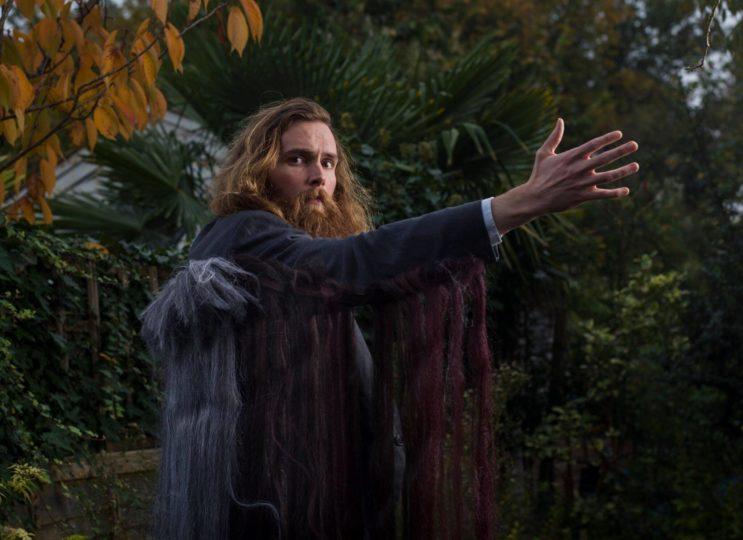
Crowd pleaser: Rob Auton Fact File
Born: Fulford Hospital, York; son of a plumber.
Raised: Barmby Moor.
Lives: London.
Education: Woldgate School, Pocklington; York College, art foundation course; Newcastle University, graphic design. “Each term I had to stand in front of the class and give a presentation and I’d try to make mine funny,” he says.
Occupation: Stand-up comedian, writer, poet, illustrator, artist, actor and podcaster. Named the “Brian Cox of comedy” by the Guardian.
First job: In London, writing adverts for the House of Fraser. “But I got really frustrated because I just wanted to make things entertaining and started filling notebooks with ideas I had.”
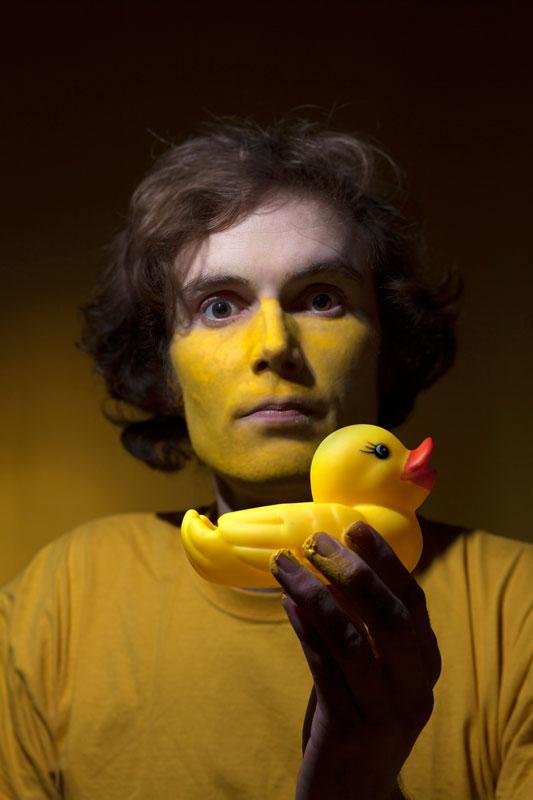
What happened next? “The creative director said he was holding a firework night with poetry, and that’s when I read my poems for the first time.”
And then? Began performing with Bang Said The Gun, stand-up poetry collective founded by Dan Cockrill and Martin Galton, in London in 2007.
First solo comedy performance: 2008. “I started saying things aloud to groups of people without wanting them to respond verbally. Some call this ‘stand-up comedy’, some call it ‘stand-up poetry’,” he says.
Edinburgh Fringe debut: The Yellow Show, 2012.
Subsequent Edinburgh shows: All on specific themes, The Sky Show, 2013; The Face Show, 2014; The Water Show, 2015; The Sleep Show, 2016; The Hair Show, 2017; The Talk Show, 2018; The Time Show, 2019; The Crowd Show, 2022. Subsequently toured shows nationwide.
Award: Won the Dave Funniest Joke of the Edinburgh Fring’ award in 2013 for “I heard a rumour that Cadbury is bringing out an oriental chocolate bar. Could be a Chinese Wispa”.
Post: Poet-in-residence at 2014 Glastonbury Festival.
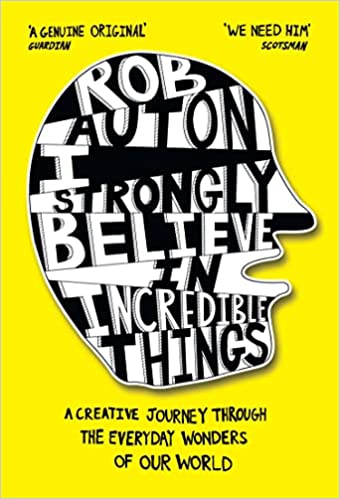
Books: Poet and illustrator for Bang Said The Gun’s Mud Wrestling With Words (2013) and solo works In Heaven The Onions Make You Laugh (2013), Petrol Honey (2014) and Take Hair (2017), all published by Burning Eye Books, and I Strongly Believe In Incredible Things: A Creative Journey Through The Everyday Wonders Of Our World (2021), featuring poetic prose, short stories and biro drawings, published by Mudlark/Harper Collins.
Television appearances: BBC1, BBC 2, Channel 4 and Netflix; The Russell Howard Hour and Stand Up Central.
Radio: His work has been played on Jarvis Cocker, Cerys Matthews and Scroobius Pip’s shows.
TV acting roles: Cold Feet, 2018, playing a bad spoken-word poet at a music festival; The End Of The F***ing World, 2019, as chef Tommy; Miracle Workers, 2019, as Hank.
Podcast: In 2020, he started The Rob Auton Daily Podcast, posting a new episode every day, as it says on the tin. Amassed two million listens and won gold award for Best Daily Podcast at the 2020 British Podcast Awards.
Likes: Musician Joe Strummer; artist Francis Bacon; author Richard Brautigan.
Auton on Auton: “I am a man who likes the sky and the ground in equal measures. Sometimes I like the sky more than the ground.”
Performing philosophy: “You have to throw it to the wind, that’s when a show starts to really cook and the audience goes with it. It’s trial and error; that’s what all my shows have been.”
